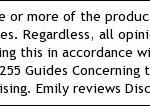This is a sponsored guest post. All opinions are my own.

Photo credit: Pexels
The healthcare industry is changing at a faster pace than ever before. In fact, medical knowledge now doubles every few months, leaving many nurses feeling overwhelmed by the sheer volume of new information, technologies, and protocols they are expected to master. For nurses, these rapid advancements present a challenge—how to provide the highest level of patient care while staying up-to-date with these ongoing shifts. Adapting to these changes is no longer optional; it’s a necessity.
Whether it’s the adoption of telemedicine, the increased reliance on data, or evolving patient care models, nurses are at the forefront of these developments.
This guide will explore practical steps nurses can take to keep pace with the evolving world of healthcare while continuing to provide exceptional care to patients.
Embrace Lifelong Learning: Why Continuous Education is Essential for Nurses
Healthcare advancements are happening at lightning speed, and nurses must stay informed about new treatments, technologies, and patient care techniques. One of the most effective ways to do this is through continuous education. Nursing is not a profession where knowledge remains static; it is dynamic, and nurses must be committed to learning throughout their careers.
Pursuing further education, such as enrolling in an online master in nursing programs, can help nurses stay ahead of industry trends and gain advanced knowledge in their field. Online programs provide flexibility, allowing nurses to continue working while expanding their skills. These programs often include the latest healthcare advancements and research, ensuring that nurses are well-equipped to handle the complexities of modern patient care. In addition to formal education, nurses can attend workshops, seminars, or webinars to keep their skills sharp and stay up-to-date on industry changes.
Build Resilience and Adaptability: Thriving in a Rapidly Changing Environment
Resilience is one of the most important traits nurses can develop in the face of rapid healthcare changes. With new protocols, patient demands, and administrative pressures, it’s easy to feel overwhelmed. Resilient nurses, however, can weather these challenges while maintaining their mental health and providing the highest standard of care.
Building resilience requires focusing on stress management and self-care. Simple strategies such as mindfulness exercises, regular physical activity, or setting aside time to unwind can have a profound impact on a nurse’s ability to cope with change. Moreover, nurses should cultivate adaptability, which goes hand-in-hand with resilience. This means being open to new ideas, learning from setbacks, and viewing change as an opportunity for growth rather than an obstacle. When nurses embrace adaptability, they become more effective in managing the evolving demands of their roles.
Focus on Patient-Centered Care: Prioritizing Patient Needs Amid Change
As healthcare continues to evolve, it’s essential for nurses to remember that at the heart of every change is the patient. Despite technological advancements or new protocols, the primary focus should always remain on delivering patient-centered care. This means understanding and respecting each patient’s individual preferences, needs, and values, even when healthcare environments become more complex.
Nurses can prioritize patient-centered care by being attentive and compassionate listeners, advocating for their patients’ best interests, and ensuring that patients are fully informed about their treatment options. Taking the time to explain new procedures or technologies to patients, for example, can help ease anxiety and build trust. Even in the midst of rapid changes, maintaining a human connection with patients is key to providing effective and empathetic care.
Advocate for Patient Safety and Quality Care: Your Role in Ensuring Excellent Outcomes
With changes in healthcare comes an increased responsibility for nurses to act as patient advocates, ensuring that new processes or technologies do not compromise patient safety. Nurses are often the first to notice discrepancies or potential issues with new systems, making their role in patient safety crucial.
By staying vigilant and reporting any concerns about new protocols or technologies, nurses can ensure that safety remains a top priority. This includes double-checking medication dosages, verifying that new technologies are functioning correctly, and speaking up when something doesn’t seem right. Advocacy also involves educating patients on their rights and options, empowering them to make informed decisions about their care. Nurses who actively advocate for patient safety not only protect their patients but also contribute to the overall quality of care within their healthcare institutions.
Participate in Policy Changes and Healthcare Reform: Why Your Voice Matters
As the healthcare landscape shifts, nurses are in a unique position to shape the future of care through policy participation. Nurses often have firsthand experience with how changes impact patient care and staff workflows, making their insights invaluable when it comes to healthcare reform. While nurses influence systemic improvements, evolving policies can also lead to expanded job options for surgeons, particularly in areas focused on preventative care, outpatient procedures, and interdisciplinary collaboration.
Getting involved in policy discussions doesn’t always mean attending high-level meetings or writing legislation. Nurses can participate by joining professional organizations, attending local healthcare forums, or providing feedback on new policies at their institutions. One key area where nurses can make an impact is in shaping healthcare placement methodology, ensuring that staffing and placement decisions reflect both patient needs and workforce capabilities. Advocacy at this level ensures that nurses’ voices are heard and that the practical realities of patient care are considered in decision-making processes. By participating in reform, nurses not only help influence policy but also contribute to creating a healthcare system that works better for both providers and patients.
Expand Clinical Skills and Specializations: The Benefits of Diversifying Your Expertise
As healthcare needs become more specialized, nurses have the opportunity to advance their careers by expanding their clinical skills and focusing on niche areas of care. Specializations like geriatrics, critical care, pediatrics, and mental health are in high demand, and nurses who pursue additional certifications or training in these areas can offer more targeted, effective care.
Diversifying expertise allows nurses to fill critical roles in the healthcare system, making them more valuable to their employers and patients. Additionally, specialization can provide a sense of professional fulfillment, as nurses become experts in a particular field and can contribute more deeply to patient outcomes. Nurses should explore opportunities for professional development that align with their interests and the evolving needs of the healthcare industry.
The rapid evolution of healthcare presents both challenges and opportunities for nurses. As frontline providers, nurses must adapt to these changes to continue delivering top-notch patient care. Whether through continuous education, technological proficiency, or strong communication skills, nurses have the tools necessary to thrive in this dynamic environment. By focusing on patient-centered care, advocating for safety, and balancing work with personal well-being, nurses can navigate the complexities of modern healthcare with confidence.
The key to thriving in a constantly changing field lies in resilience, adaptability, and a commitment to lifelong learning. With the right strategies in place, nurses will not only keep up with the pace of change but also lead the way in shaping the future of patient care. By embracing their roles as advocates, collaborators, and lifelong learners, nurses can ensure that they remain at the forefront of healthcare’s transformation, delivering exceptional care every step of the way.

Hi there! I am Emily Evert, the owner of Emily Reviews. I am 28 and live in a small town in Michigan with my boyfriend Ryan and our two pugs. I have a large family and I adore my nieces and nephews. I love reading memoirs, and learning about child development and psychology. I love watching The Game of Thrones, Teen Mom, Sister Wives and Veep. I like listening to Jason Isbell, John Prine, and other alt-country or Americana music. I created Emily Reviews as a creative outlet to share my life and the products that I love with others.
This post currently has no responses.
















Leave a Reply